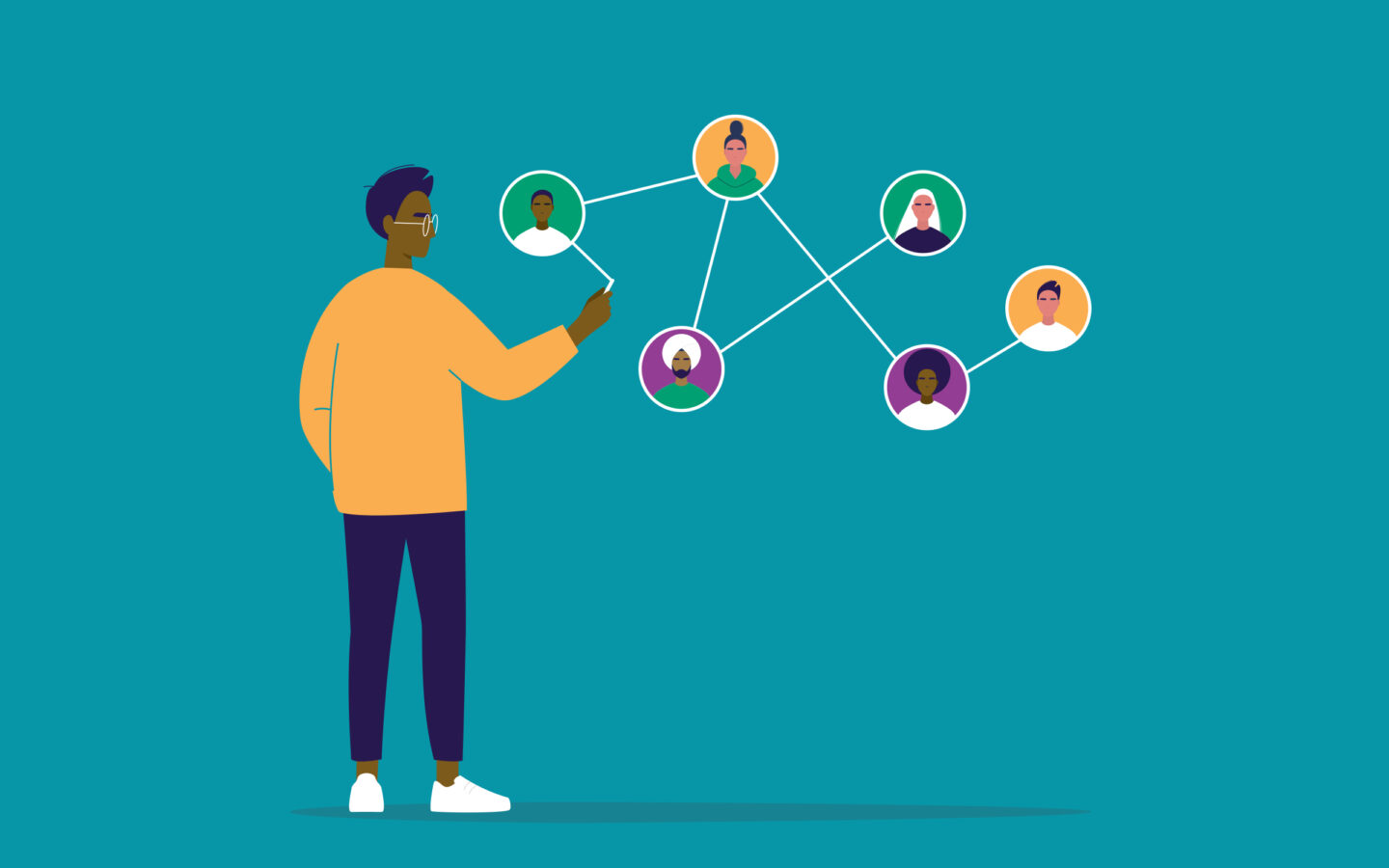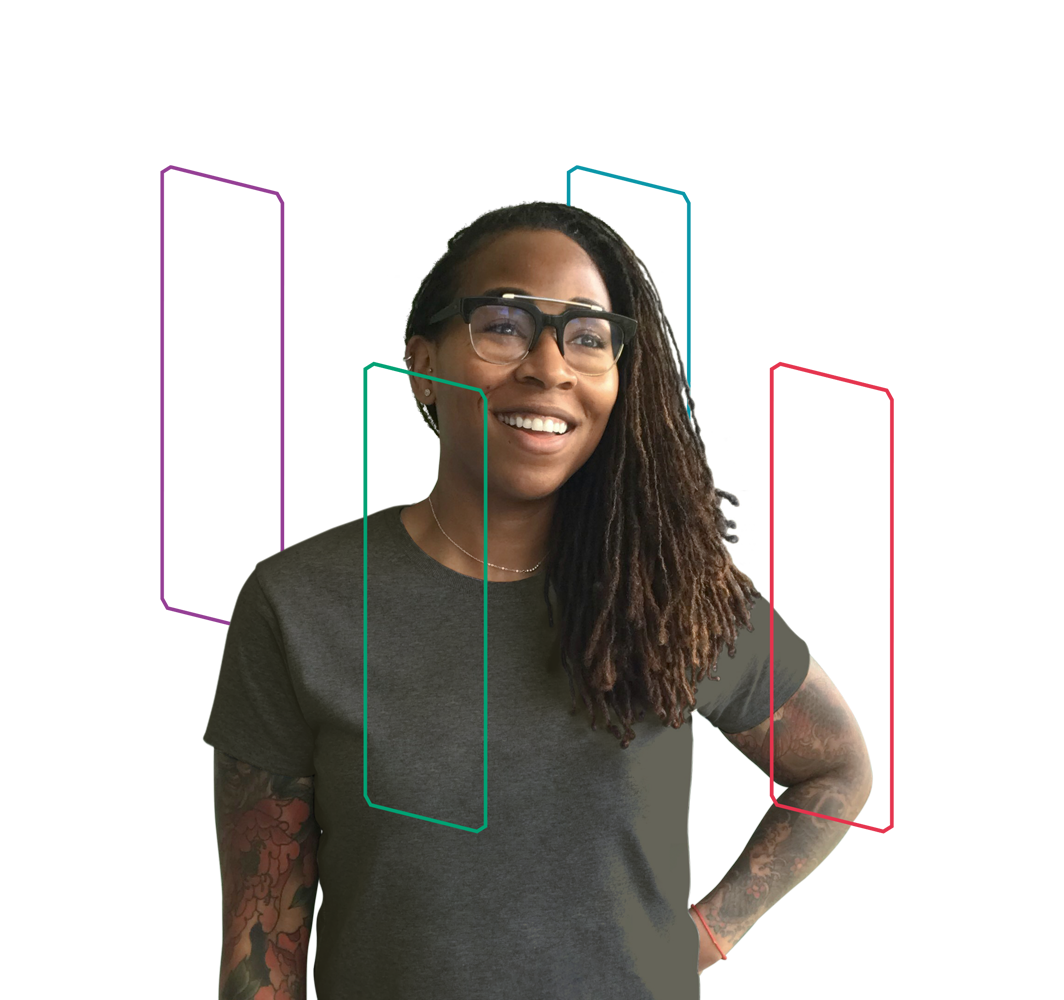- Nurses are innovators by nature, and hackathons are a perfect opportunity for those passionate about problem-solving.
- What’s a hackathon? It’s a weekend or 24-hour event to create an innovative solution for an industry problem.
- Two nurse innovators share how hackathons are a great way to level-up your nursing career and create solutions for the everyday challenges we face at the bedside.
We first got interested in health care hackathons this summer when we interviewed renowned nurse innovator Rebecca Love for our SHIFT Talk season finale (definitely give it a listen if you haven’t had the chance yet!). Since releasing that podcast episode, we’ve received lots of questions from this community about hackathons — ranging from “What the heck is a hackathon, anyway?” to “Who can join one?” to “How could participating in a hackathon help me?” To get the answers to these questions, we sat down with two of the nurse innovators who co-founded SONSIEL (the Society of Nurse Scientists Innovators Entrepreneurs and Leaders) with Rebecca Love.
Marion Leary, RN, MSN, MPH, is the director of innovation at the University of Pennsylvania’s School of Nursing and a SONSIEL board member, and Hiyam Nadel, RN, MBA, CCG is also a SONSIEL board member and serves as the director of the Center for Innovations in Care Delivery at Massachusetts General Hospital. This dynamic duo has participated in and planned a number of hackathons. Just recently, they pulled off their second virtual hacking extravaganza, #NurseHack4Health, in collaboration with SONSIEL, Microsoft, Johnson & Johnson, and dev up.
Marion and Hiyam graciously made time to talk some shift with us the weekend before the big event. Here’s what we learned: Nurses are innovators by nature, and joining a hackathon is a great way to level-up your nursing career. Don’t worry, you don’t need to be “techy” to get involved — you’ve just got to want to make healthcare better. (So basically, be a nurse.)
Digging deeper with Marion and Hiyam as they planned and led this year’s virtual #NurseHack4Health
SHIFT: Let’s cut to the chase — what the heck is a hackathon?
Marion: A hackathon is an intensive event where participants work rapidly over a weekend or sometimes even just a 24-hour period to create an innovative solution that solves an industry problem. You start by forming a team and coming together to brainstorm about how to develop a solution to a particular challenge. Then you pitch that idea to a team of experts who give you feedback and make recommendations for improvements. By the end of the hackathon, the goal is to have what’s called a minimally viable product or MVP – something that can eventually be turned into a real, usable solution. At the first virtual #NurseHack4Health event in May 2020, more than 500 innovators from across the globe divided into 32 teams and came together to build solutions to address the COVID-19 pandemic – as they will again during the fall event. There were five winners following the May hackathon. A few of these solutions include:
- Project Flourish: A digital tool to bring telehealth to people in remote areas without the need for a smart phone.
- Hear Now: A platform that hosts recorded messages from loved ones, which nurses can play for patients on demand.
- Nurse GPS: A method for tracking important medical equipment on hospital floors to improve the efficiency of care.
SHIFT: How did you get involved in nurse hackathons, and how has participating in these events impacted your careers?
Marion: I originally got involved in hackathons while working on my Penn-affiliated startup company. As I began getting more involved with tech and innovation, one of my mentors at Penn Nursing introduced me to hackathons. I actually attended – and won – the very first nurse hackathon at Northeastern University in Boston, and I’ve been hooked ever since – hooked on hackathons but also hooked on the amazing team of people that participated and eventually founded SONSIEL. It was incredible to finally find people who were as passionate about innovation in nursing as I was. This approach to problem-solving and these like-minded problem-solvers basically changed the trajectory of my career. I started getting more into innovation and technology. Now I’m the director of innovation at Penn Nursing.
Hiyam: For many years, in fact even as a nursing student, I knew I was different – I was sort of innovating all the time. And then a few years later, I would see my inventions (as probably many nurses have) put on the market by others. After this happened to me several times, I realized that I needed to start making innovation a professional priority. So, I went to get my MBA. I was working on an entrepreneurship partnership and I was asked to lecture at the same hackathon Marion attended at Northeastern. After spending the weekend with these nurses, just like Marion said, I knew I had found my tribe. I thought, this is where I need to be, and this is what I need to do for the second half of my career. After that, I used this knowledge and my passion for innovation to stand up a center for innovation at Mass General.
SHIFT: Is there a particular approach or framework used to solve problems in the hackathons put on by SONSIEL?
Marion: Yes, the hackathons we put on use what’s called design thinking, which is a five-step process to creating solutions using a human-centered approach. We teach participants about design thinking through an education session and provide resources for design thinking throughout the entire event, so they are well-equipped to develop solutions that are meant not only to solve a problem but to solve it with empathy. My core professional focus is around human-centered design – which essentially says that we shouldn’t have a solution to a problem without empathy. A patient-centered approach is good, but a human-centered approach is better because people are patients for a very short period of time, but they are human all the time. To me, we should be designing solutions, not by telling patients or nurses what we think they need, but by allowing them to tell us and show us what they know they need.
SHIFT: You’re currently planning your second virtual hackathon event since the pandemic began –#NurseHack4Health. Tell us about the event and the type of problems are you hoping to solve this time around.
Hiyam: #NurseHack4Health is an intensive weekend dedicated to using the brain power and skills of nurses to create solutions to real-world problems we’re facing in healthcare. The goal of this hackathon is to improve the global response to COVID-19 through education and communication. Solutions could be related to addressing COVID-19 vaccine misinformation, health inequities, or even encouraging mask-wearing. This hackathon is geared toward nurses but is open to everyone and anyone who is interested.
SHIFT: What do you want nurses and other participants to get out of this experience?
Hiyam: First of all, I think and hope, that nurses who participate will develop more confidence in their knowledge base, their ideas, and in themselves. It’ll be amazing to see what they will contribute. I would love to see them take their ideas or their MVPs back to whatever facility or institution they belong to and apply what they’ve learned, keep going, and teach others about how to innovate and think big.
Marion: Participants can expect to be working really hard all weekend long but also having a lot of fun. It’s amazing how much work you’ll do, but how much it doesn’t feel like work because it really is a creative atmosphere. And really, we want everybody to feel like a winner – to feel like they can move their ideas and solutions forward. I’d also say that I don’t want people spending the weekend coming up with ideas and solutions, just to come up with ideas and solutions. We want it to actually materialize into something – especially around COVID-19, when nurses are already busy and have a lot of things going on. That’s why all of the solutions that are created during this hackathon are open access, which means anyone can find it on GitHub and adapt it, scale it, and bring it to life.
Talk about getting SHIFT done!
Dedicating an entire weekend to solving COVID-19-related problems for nurses and patients, and then sharing those solutions with any healthcare provider who needs them? That sounded a lot more productive to us than another round of pizza parties and being hailed as heroes. In fact, we were so intrigued that we decided to follow up with a nurse who participated in the event.
Coming in January — a follow-up on hackathons featuring first-time hacker Renee Davis, who spoke to SHIFT about her experience as a participant in the #NurseHack4Health event and how she’s used the knowledge she gained in her everyday work as a nurse.


